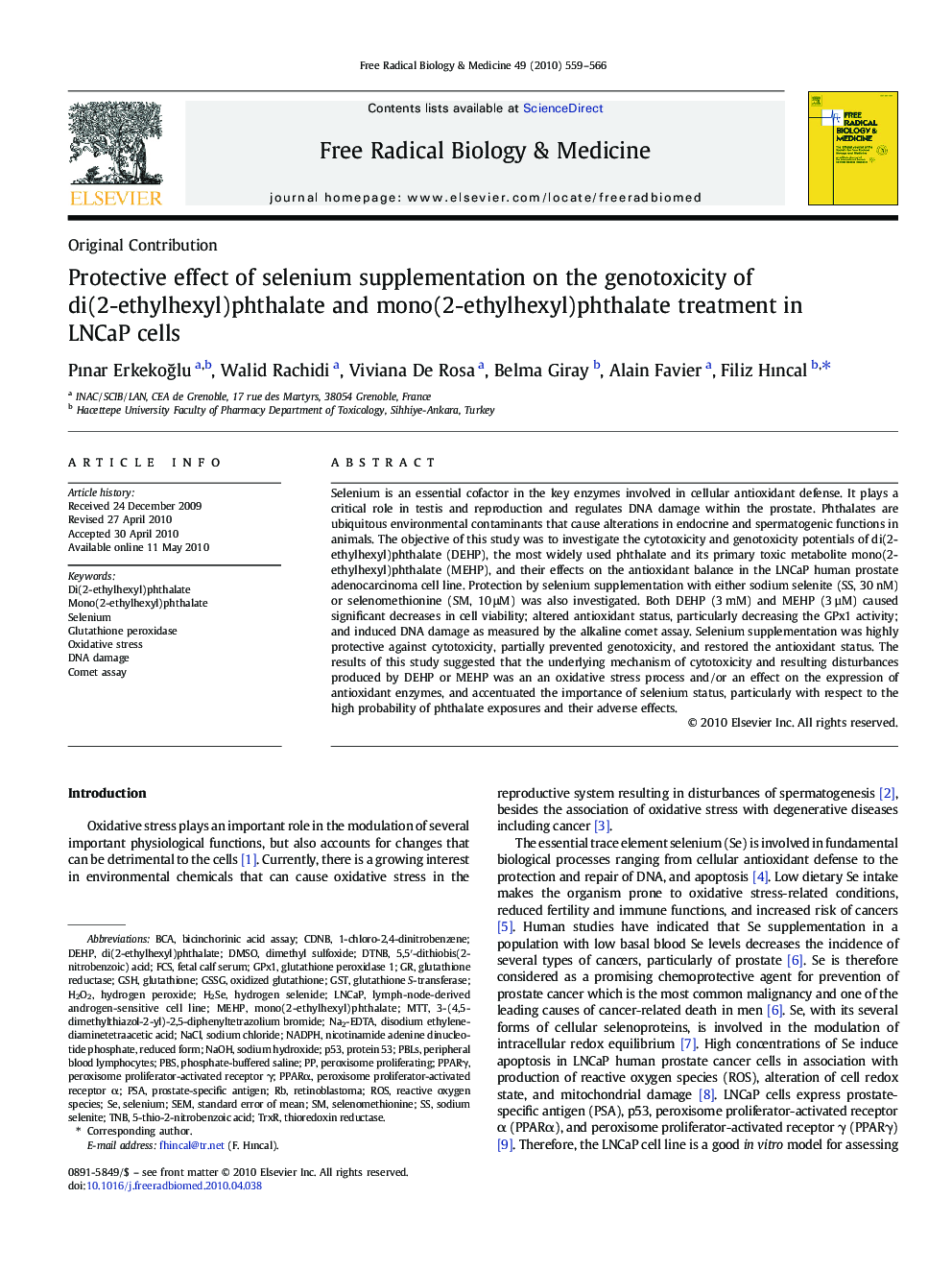| Article ID | Journal | Published Year | Pages | File Type |
|---|---|---|---|---|
| 1909264 | Free Radical Biology and Medicine | 2010 | 8 Pages |
Selenium is an essential cofactor in the key enzymes involved in cellular antioxidant defense. It plays a critical role in testis and reproduction and regulates DNA damage within the prostate. Phthalates are ubiquitous environmental contaminants that cause alterations in endocrine and spermatogenic functions in animals. The objective of this study was to investigate the cytotoxicity and genotoxicity potentials of di(2-ethylhexyl)phthalate (DEHP), the most widely used phthalate and its primary toxic metabolite mono(2-ethylhexyl)phthalate (MEHP), and their effects on the antioxidant balance in the LNCaP human prostate adenocarcinoma cell line. Protection by selenium supplementation with either sodium selenite (SS, 30 nM) or selenomethionine (SM, 10 μM) was also investigated. Both DEHP (3 mM) and MEHP (3 µM) caused significant decreases in cell viability; altered antioxidant status, particularly decreasing the GPx1 activity; and induced DNA damage as measured by the alkaline comet assay. Selenium supplementation was highly protective against cytotoxicity, partially prevented genotoxicity, and restored the antioxidant status. The results of this study suggested that the underlying mechanism of cytotoxicity and resulting disturbances produced by DEHP or MEHP was an an oxidative stress process and/or an effect on the expression of antioxidant enzymes, and accentuated the importance of selenium status, particularly with respect to the high probability of phthalate exposures and their adverse effects.
